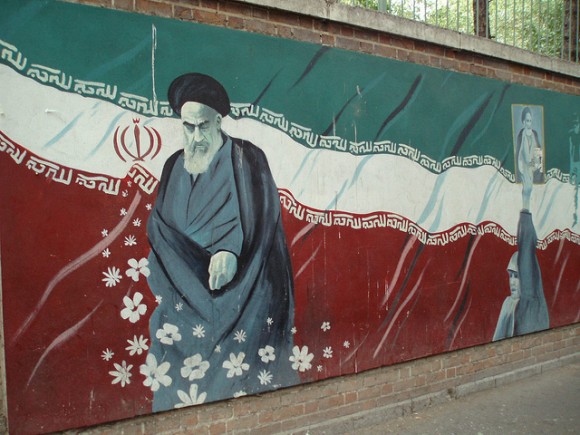
There are at least two ways to evaluate the US’s policy of sweeping economic sanctions on Iran. The first is to take the stated aim of the sanctions – what US officials claim is their purpose – and assess their efficacy. In this case, US officials claim the purpose of the sanctions is to inflict so much economic pain that the Iranian government is pressured to make major concessions on their nuclear program.
The International Crisis Group (ICG) has just written a paper assessing the efficacy of the sanctions on their own terms. “Without doubt, they are crippling Iran’s economy,” the paper finds. “But are they succeeding” in pressuring Iran to concede to US demands on its nuclear program? “[P]lainly they are not.”
Instead of serving as a means to an end, the ICG paper concludes, the sanctions approach has become an end in itself, because “in the absence of any visible shift in Tehran’s political calculus, it is difficult to measure their impact through any metric other than the quantity and severity of the sanctions themselves.”
One “unintended consequence” of just relentlessly imposing harsh economic warfare without trying to incentivize Iran towards a political settlement is that it further persuades Iranian leaders that “the goal is regime change.” The strategy holds a “considerable risk,” the paper concludes, “that by placing all one’s eggs in the sanctions basket, failure may appear to leave no other option but war.”
Here we are brought to the second way to evaluate the sanctions on Iran: assessing their effectiveness according to their actual aims instead of the stated aims.
If we evaluate it this way, the mystery of why Washington continues down this dead end road evaporates. That is to say, the sanctions are incredibly effective at blocking any diplomatic opening with Iran and relegating the potential policy options down to two: (1) more sanctions, or (2) war.
In their recent Foreign Affairs article, Rolf Ekéus, who was Executive Chairman of the UN Special Commission on Iraq from 1991 to 1997, and Målfrid Braut-Hegghammer of Stanford University, write explicitly that the sanctions have “the long-term objective of regime change,” as opposed to a diplomatic settlement.
Their case study is Iraq. Back in the 1990s, when the US-led sanctions regime in Iraq was killing millions of innocent people, Saddam’s regime eventually met UN Security Council requirements to get the sanctions lifted, but the US refused to provide any sanctions relief.
“In the spring of 1997,” the authors write, “former US Secretary of State Madeleine Albright gave a speech at Georgetown University in which she stated that even if the weapons provisions under the cease-fire resolution were completed, the United States would not agree to lifting sanctions unless Saddam had been removed from power.”
It’s hard to see the Obama administration’s approach as any different. As I’ve written, Washington doesn’t appear to be interested in diplomacy. Dominance is what they want. They want to weaken the Iranian regime. And judging by that criteria, sanctions are incredibly effective.


